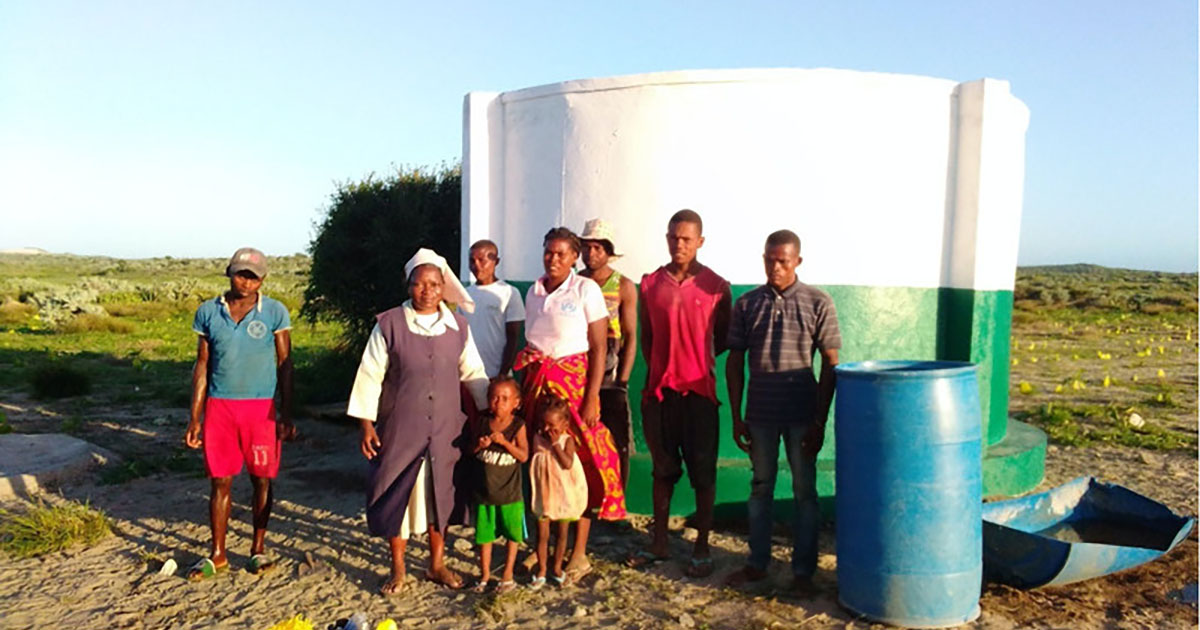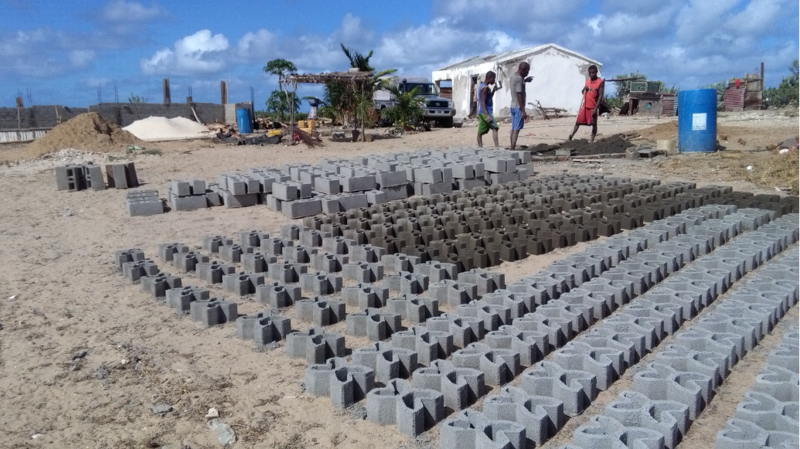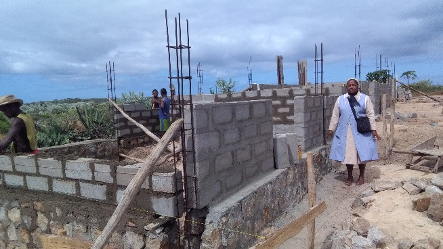The 2 projects took place in Faux-cap, 35 km from Tsihombe in Madagascar (Androy region).
The aim of the “La ferme des plaines” project was to build a farm to provide training in new animal husbandry practices. It complemented the “L’eau des plaines” project, achieved in 2021 to build a large drinking water reservoir for the population of Faux-cap.
The sisters were forced to divide their initial project into two parts, starting with the construction of the 30m3 pond before building the farm. The explosion in the cost of raw materials, supply and transport difficulties between Faux-cap, Tsihombe and sometimes Fort-Dauphin to obtain the rarer foodstuffs and building materials, and then the unfavourable exchange rate, put a heavy strain on the cost of the overall project.
“The water is salty at Faux-cap. Thanks to the reservoir that you financed, 2,500 residents come every day to have drinking water for their own consumption, to do their gardening and to enable their livestock to live well and multiply.
The basin is filled with fresh water brought from Tsihombe, and then water is given to each group of herds. The farmer gives the oxen water first, so as not to crush the sheep and goats that come after. We’ve also had a good harvest in the vegetable garden, because with the rainfall last season was much better than expected.
We thank you very much”. Sr Josiane
Unfortunately, Sr Josiane fell ill*, which further delayed the second project. She was replaced by Sister Augustine and with the help of Sister Marie-Clarisse, they were finally able to start building the farm to train shepherds in new animal husbandry practices.
The inhabitants of the region are farmers and breeders of cattle, goats and sheep. But the shepherds have no farms and are forced to leave their animals free in the wild day and night, which is detrimental to the development of the herds. There was also an urgent need to protect the livestock from the heat and rain. We went to Tsihombe to buy the necessary materials with the workmen. As Faux-cap is 35 km from the town and the road is very bad, work didn’t start until April 2023.
First we had to build a small hut where the workers could stay and shelter the equipment, because everything had to be transported from Tsihombe, even the fresh water for the animals.” Sr Marie-Clarisse
Next came the production of the breeze blocks. Once they were dry, construction of the farmhouse proper could begin: erecting the walls, pouring the concrete, installing the sheet metal and doors. It was finally completed on 10 June 2023. The farm consists of 3 large rooms: one for the oxen, one for the sheep and one for the goats. Thanks to the way shepherds now use a farm, the animals are safe and their breeding is regulated.
The 2 projects benefit a large number of people:
– 2,500 residents of Faux-cap use the drinking water reservoir
– 365 young shepherds have learned to rear small livestock on their own.
– around 50 people come to buy animals from the farm: oxen, goats or sheep, either to resell them or to rear them themselves.
“The Roger family are 4 children, illiterate and very poor. Since the father of the family became a shepherd and trained on the farm, he has become convinced that raising animals on a farm (pigs, sheep and goats) is more profitable than leaving them in the wild. As a result, the family has built a small farm all to themselves and is already starting to have offspring that they are selling. The whole life of the family has changed and the children now go to school! ” Sr Augustine
“We can’t thank you enough for your support,
and for your understanding and indulgence for the delay in completing the farm.” Sr Marie-Clarisse
*Sister Josiane is still undergoing treatment
Source: https://www.projets-rosalie.com/













0 Comments